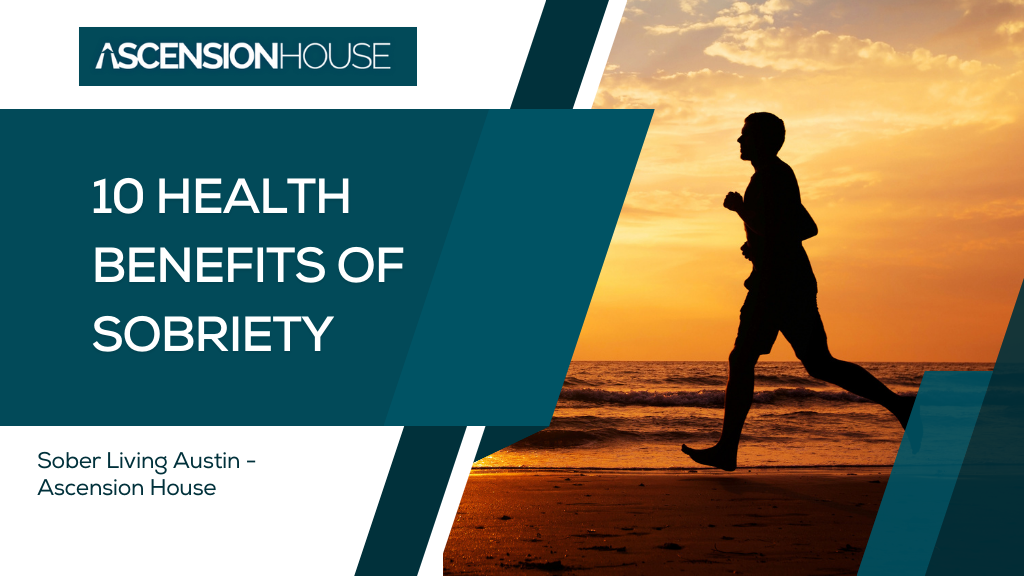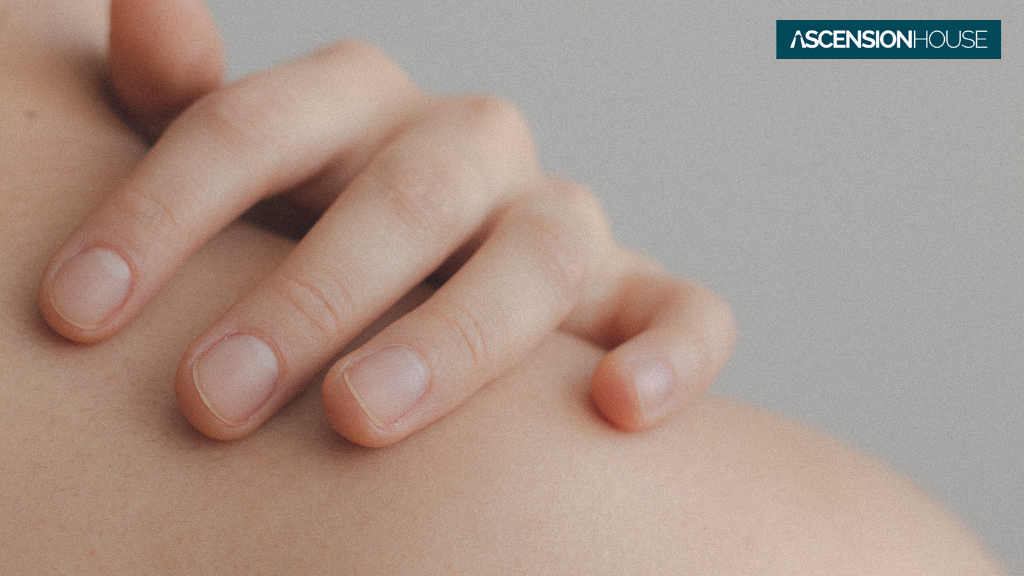
Drinking takes a toll on your body and can affect every aspect of your health. This includes the liver, skin, body weight, immune system, and blood pressure. Typically, quitting alcohol is the best thing you can do, especially if you also have a drug addiction.
You’ll focus on long-term recovery and experience all the physical health benefits of quitting alcohol. Many people see a better life after they stop drinking. For example, they’ll have improved sleep, higher energy levels, and much peace.
Improving your overall health is likely the best thing you can do, and it offers many benefits. Though getting and staying sober isn’t easy, programs and treatments are available to help. Let’s learn more about the advantages of sobriety!
Discover the incredible health rewards that come with embracing sobriety – a journey towards well-being and vitality.
— Ascension House – Sober Living Austin (@AscensionSober) August 8, 2023
Read here: https://t.co/V3Y1lN19FG pic.twitter.com/YNuIO9KwdG
10 Physical Health Benefits of Sobriety
Alcohol abuse can negatively affect your entire body, and it’s crucial to start breaking bad habits you’ve created through drinking. These are the top 10 benefits of sobriety:
1. No Hangovers
Hangovers happen because of withdrawal and dehydration. You’ll often experience cramps in the early morning hours and can’t use your critical thinking skills until you take OTC painkillers or have another drink. Likewise, hangovers might cause you to lay in bed all day and overeat junk food. Plus, they’re uncomfortable!
Once you quit drinking alcohol, you’ll never have to deal with hangovers again. You will be happier, more productive, healthier, and more active. You’ll probably feel better and can get up in the mornings and start your day.
2. Potential Weight Loss
Drinking alcohol will cause you to put on weight in various ways. The most direct method of weight gain is because of the high caloric content. A simple beer contains about 200 calories. If you have several of them, it adds up fast.
Likewise, alcohol is empty calories, meaning you don’t get any nutrition from what you consume. Instead of filling your body with healthy foods, you’re focused on the next drink.
There are also indirect ways that alcohol could cause you to gain weight. For example, you might eat more junk food while binge drinking. Often, it’s used as a way to sober up quickly. However, junk food is unhealthy in many ways.
If you want to improve your eating habits and have a substance abuse problem, quitting alcohol is the first step. It will benefit your overall health and possibly help you lose weight while curbing mood swings.
3. More Energy
Alcohol often zaps people’s energy in various ways. Because it’s a depressant, you’ll be less energetic. Plus, you won’t get quality sleep and often feel tired.
Sober living and quitting drinking will help you get the energy needed to live. You’ll be more aware and can concentrate better on whatever you’re dealing with. Whether you run a marathon or play with the kids, it will be easier!
4. Healthier Brain
Drinking acts as a depressant, so that it will slow the brain down. Therefore, you can’t think quickly when you drink significant amounts. Likewise, this might cause a blackout or memory loss.
Alcohol-related brain damage is also possible for long-term drinkers. For example, wet brain syndrome is like dementia. People often go into psychosis and deal with memory loss.
Overall, drug abuse of any kind is dangerous to the brain. The best thing you can do is quit drinking and get sober. Your brain will be sharper, you’ll remember things better, and you won’t have to risk brain damage.
5. Reduced Risk of Cardiovascular Disease and Cancer
Alcohol causes severe health risks, such as cardiovascular disease and cancer. When your bad cholesterol is oxidized as you drink, it builds up and blocks the carotid arteries. Likewise, alcohol has been linked to various cancers of the voice box, esophagus, throat, mouth, colon, bowel, and liver. Even light drinkers could get cancer.
If you want to be at a reduced risk of cancer and heart disease, quitting alcohol is the best solution. However, you must complete the steps for full addiction recovery to get the full effects.
6. Better Sleep
One issue with abusing alcohol is that you’ll never get restful sleep. Typically, drinking causes you to fall asleep fast, but you don’t get the REM (Rapid Eye Movement) sleep phase. This is crucial for forming memories.
Likewise, poor sleep from alcohol use will also cause you to feel tired and may affect how you remember things. Sober living is the best solution because you will sleep better and be more productive daily.

7. Lower Blood Pressure
Scientists know that alcohol and high blood pressure are linked, which increases your risk of stroke and other health problems. When you drink, the body releases vasoconstrictors, which thin the blood vessels and might lead to higher blood pressure.
Quitting alcohol will help you lower your blood pressure levels to the optimal level. However, you’ll have to go through the addiction recovery steps to see a quality improvement.
8. Healthier Immune System
Typically, a person with an alcohol use disorder will cough or get a runny nose frequently because the alcohol doesn’t allow their immune systems to work correctly. Likewise, alcohol causes liver disease; even mild drinking could increase the risk of mild fibrosis or fatty liver disease.
However, starting a sober lifestyle can help combat those issues and promote well-being.
9. Improved Mental Health and Mental Clarity
While it’s not a physical benefit, many people suffer from mental health issues caused by heavy drinking. They get scared when they get fuzzy memories about what happened. Plus, they’re numbing reality and not dealing with their problems.
However, these mental health issues don’t go away. They’ll continue pressing for apparent reasons until you can and want to stay sober.
Generally, your mental health will get better as you stop drinking. You’ll notice improved relationships and mental clarity so that you can live life again without fear of addiction.
Your mental health can cause you to eat more fast food than necessary. You may also exercise less and sleep poorly. When you deal with the root of the problem, you can improve all aspects of your life.
10. Better Skin
Alcohol is dehydrating, so it will steal your skin’s moisture. Therefore, heavy drinkers often have blotchy or dull skin. Likewise, burst nose vessels can be unsightly and can form in long-term drinkers.
It’s wise to focus on the addiction treatment options available to you to avoid this and many other issues. Stop drinking alcohol now to live a healthier lifestyle.

Final Thoughts on Beating Alcohol Addiction and Focusing on Sobriety
If you’re dealing with addiction, seeking an evidence-based treatment plan is crucial, and Ascension House can help.
It’s up to you to seek addiction treatment, and many programs and options are available. Therefore, you should research your options and work with a professional immediately. You can live a sober life but must be willing to quit drinking for good. Though it’s challenging, it’s worth it in the long run!
FAQs
We’ve talked about the ten benefits of sobriety, but here is a better look at the top five:
Better emotional health
Improved mental clarity
Less trouble falling asleep
More energy
Healthier lifestyle
At about six months sober, you will notice positive changes in your physical/mental health. You’ll have a better appearance and can control brain and liver damage if it hasn’t gotten too bad.
Typically, people notice that their relationships improve, and they have lower social anxiety. Plus, they have balanced emotions and better sleep patterns.
In general, sober people are healthier. You’ve learned about the physical benefits of sobriety and can now determine if they might be better than suffering from your addiction. Treatment is possible, but you must want it!
After living the sober life for 12 months, you’ll notice these physical benefits of sobriety:
Better psychological functioning
Improved mental functioning
Better work performance and relationships
However, there’s likely to be some physical and emotional discomfort on your journey. Your brain and body must learn to deal with life without the alcohol it once got. Therefore, it’s best to work through the addiction with a professional.
Book a Free Assessment
Contact us to schedule a free addiction or mental health assessment as part of our admissions process.
 11700 Bittern Hollow Dr., Austin TX 78758
11700 Bittern Hollow Dr., Austin TX 78758 (512) 598-5030
(512) 598-5030






